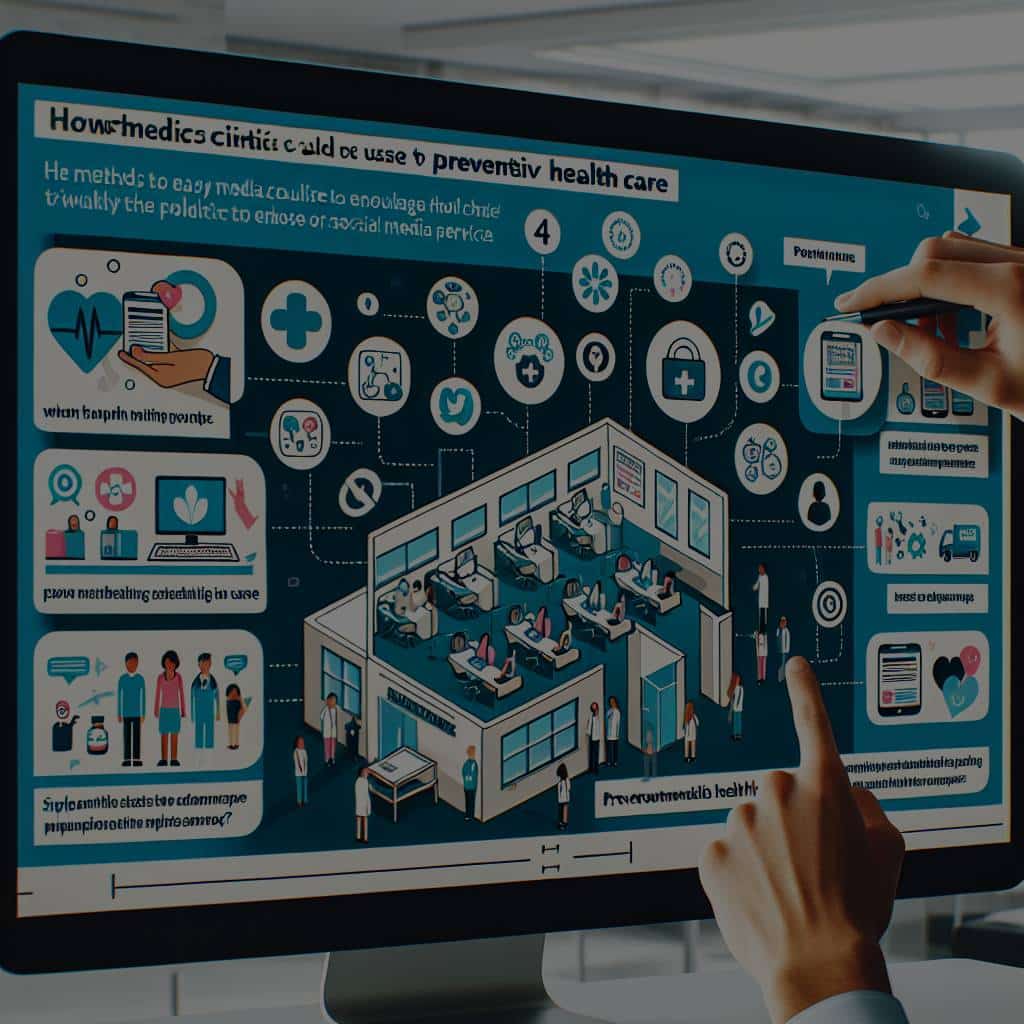How Can UK Health Clinics Use Social Media to Promote Preventative Care Services?

In an era of digital transformation, the power of social media cannot be underestimated. It has become a critical tool for businesses across every sector, including health care. Just like retailers and restaurants, health clinics can use social media to reach out to a broad audience, increase awareness about their services, and engage with patients directly.
In this article, we’ll explore how health clinics in the UK, and specifically the National Health Service (NHS), can leverage social media to promote preventative care services. We will discuss five key strategies that can support this digital transition: raising awareness, providing accurate information, offering support, enabling access, and utilising data for improvement.
Also to see : What Are the Key Legal Considerations for UK Businesses Using AI in Hiring Practices?
Raising Awareness: A Digital Revolution
The first step in leveraging social media for healthcare clinics involves raising awareness about the availability and importance of preventative care services. A survey by the Office for National Statistics (ONS) reveals that about 45 million people in England use social media daily. This signifies a vast audience that health clinics can reach and engage with.
Healthcare providers can use platforms such as Facebook, Twitter, Instagram, and LinkedIn to promote their services. Regular posts about the benefits of regular check-ups, importance of vaccinations, or the need for early cancer screenings can help to inform and remind people about preventative care services.
This might interest you : What Are the Challenges of Implementing Renewable Energy Solutions in UK Manufacturing?
In addition, social media can be used to publicise health events, such as flu vaccine clinics or health fairs, and encourage people to attend.
Providing Accurate Information: Combating the Infodemic
In an era where misinformation can spread rapidly, health clinics have a responsibility to provide accurate and reliable health information. The World Health Organization (WHO) has even coined the term "infodemic" to describe the proliferation of misinformation during health crises.
Healthcare providers can use social media platforms to share authoritative health information. This could include links to scholarly articles on PubMed, infographics on preventative care, or videos explaining how to perform self-examinations. Providing accurate information not only educates the public but also helps build trust and credibility.
Moreover, having a strong online presence can help health clinics counteract misinformation. By actively posting and responding to comments, health clinics can address misconceptions or inaccuracies and provide the correct information.
Offering Support: A Virtual Helping Hand
Social media can also be utilised as a platform for providing support to patients. Health clinics can create online communities where patients can engage with health care providers and fellow patients. These communities offer a safe space for patients to share their experiences, ask questions, and receive emotional support.
In addition to creating a supportive community, health clinics can use social media to provide personal support to patients. For instance, reminders about upcoming appointments or medication refills can be sent via direct messages. This personal touch can enhance patient satisfaction and adherence to preventative care.
Enabling Access: Bridging the Digital Divide
Another significant way health clinics can use social media to promote preventative care is by improving access to their services. An increasing number of people are turning to the internet for health-related information. In fact, a Pew Research Center study found that 72% of internet users looked online for health information.
Health clinics can use social media to help these individuals access their services. This could include posting operating hours, providing directions to the clinic, or allowing patients to book appointments online. Furthermore, health care providers can host online sessions or webinars, extending their reach to those who might not be able to visit the clinic in person.
Utilising Data for Improvement: A Feedback Loop
Lastly, health clinics can use social media to gather valuable feedback and data. Social media platforms provide analytical tools that can help healthcare providers understand their audience better. This includes information about who is engaging with their posts, what content resonates with their audience, and when their audience is most active online.
This data can be used to improve the effectiveness of social media campaigns, tailor content to the audience’s needs, and identify areas for improvement in the provision of preventative care services. Moreover, feedback received through comments or direct messages can provide insights into patient satisfaction and areas for improvement.
In conclusion, the power of social media can be harnessed by health clinics in the UK to promote preventative care services. By raising awareness, providing accurate information, offering support, enabling access, and utilising data for improvement, health clinics can reach a broader audience and enhance patient engagement. As more people turn to online resources for health information, the role of social media in health care delivery is set to become increasingly important.
Building Trust and Engagement: Nurturing Relationships
The effectiveness of social media as a tool to promote preventative health care is significantly enhanced when health clinics take the time to build trust and nurture relationships with their audience. Trust is a critical factor in health care. Patients must trust their healthcare providers to share personal health-related information and follow the advice or treatment plans provided.
The constant, two-way communication facilitated by social media platforms provides an excellent opportunity for health clinics to build and nurture relationships with their patients. This can be achieved through regular engagement with followers via comments, messages, and interactive content such as polls or quizzes.
Health clinics can also use social media to showcase their commitment to their patients and the wider community. Sharing behind-the-scenes images or introducing staff members helps to humanise the clinic, making it feel more approachable and accessible to patients.
Furthermore, using social media to acknowledge and celebrate important events, such as "World Mental Health Day" or "Breast Cancer Awareness Month", demonstrates the clinic’s commitment to public health and can help to foster community engagement.
Remember, the key to building trust and nurturing relationships on social media is consistent, authentic, and empathetic engagement. When patients feel heard, respected, and valued, they are more likely to engage with preventative care services and share the clinic’s content within their own networks.
Addressing Health Inequalities: The Power of Inclusive Communication
Inclusive communication can play a pivotal role in addressing health inequalities. Health inequalities refer to the unfair and avoidable differences in health status observed between different population groups. In the UK, these inequalities often stem from socioeconomic factors, such as income, education, and employment status.
Social media offers a platform for health clinics to reach diverse audience groups and individuals who may not typically engage with traditional health systems. By adapting their communication strategy to be more inclusive, health clinics can ensure that vital preventative health information is accessible to all, regardless of their socioeconomic status.
To achieve this, health clinics need to consider factors such as language, cultural appropriateness, and digital literacy when crafting their social media content. For example, information could be shared in multiple languages or using simple, easy-to-understand language. Visual aids such as infographics or videos can also be utilised to explain complex health concepts in a way that is easy to understand.
Moreover, health clinics could collaborate with influential figures within different communities to deliver health messages. This could include working with community leaders, celebrities, or influencers who are respected and trusted within these communities.
Remember, taking steps to make communication more inclusive not only helps to bridge health inequalities but can also enhance the reach and impact of preventative care services.
Conclusion
In conclusion, social media has vast potential as a tool for promoting preventative care services in UK health clinics. Beyond raising awareness and providing accurate information, social media can be used to build trust, nurture relationships, and address health inequalities through inclusive communication. By effectively leveraging these digital platforms, health clinics can enhance patient engagement, improve health literacy, and ultimately, promote better health outcomes. As the digital landscape continues to evolve, it is essential for health clinics to continue exploring innovative ways to maximise the benefits of social media in health care delivery.
